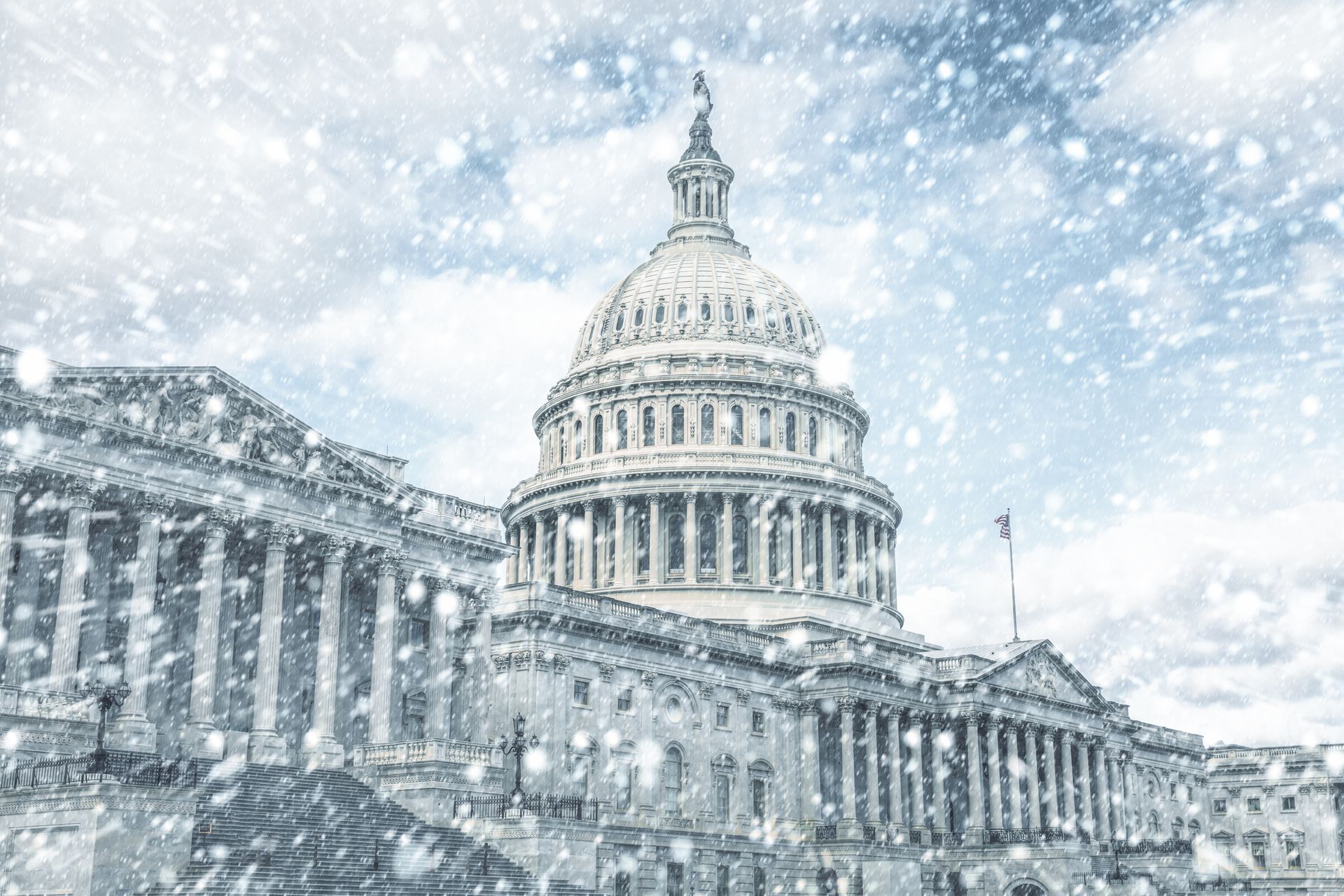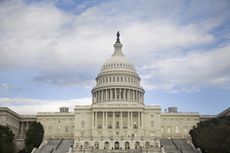Families and Businesses Would Get Big Tax Breaks in Bipartisan Tax Deal
A new last-minute tax deal could change the child tax credit, R&D expensing, and the employee retention tax credit.


Enhanced tax credits for businesses and families could come soon under a $78 billion tax framework announced by Senate Finance Committee Chairman Ron Wyden (D-Ore.) and House Ways and Means Committee Chairman Jason Smith (R-Mo.).
If approved by Congress and signed by President Biden, the proposed Tax Relief for American Families and Workers Act of 2024 would improve the child tax credit (CTC), low-income housing credit, and R&D expensing. Additionally, if Congress agrees, the funding compromise would essentially bring an end to the much-maligned employee retention tax credit (ERC) and provide enhanced disaster relief for some taxpayers.
“Fifteen million kids from low-income families will be better off as a result of this plan, and given today’s miserable political climate, it’s a big deal to have this opportunity to pass pro-family policy that helps so many kids get ahead, Sen. Wyden said in a statement accompanying the tax framework summary.

Sign up for Kiplinger’s Free E-Newsletters
Profit and prosper with the best of expert advice on investing, taxes, retirement, personal finance and more - straight to your e-mail.
Profit and prosper with the best of expert advice - straight to your e-mail.
Did the child tax credit pass for 2024?
Although the framework is a positive step, Wyden had said the goal was for Congress to pass the tax legislation in time for families and businesses to benefit in this 2024 tax filing season. That’s a tall order. The focus until recently had been on Congress averting a partial government shutdown.
But the main time crunch is that the IRS began accepting federal income tax returns on Jan. 29. The U.S. House of Representatives passed the bill. The proposed legislation moved to the U.S. Senate, where its passage is unclear.
Congressman Smith showed support for the tax proposal stating “American families will benefit from this bipartisan agreement that provides greater tax relief, strengthens Main Street businesses, boosts our competitiveness with China, and creates jobs.” Smith added, “I look forward to working with my colleagues to pass this legislation.”
National Taxpayer Advocate Erin Collins expressed concern about the IRS being able to adjust to significant tax law changes during tax season. Speaking at an American Bar Association meeting, Collins said she appreciated Congress' efforts to help taxpayers. But she added that realistically, the new proposed legislation would "negatively impact the filing season."
Meanwhile, IRS Commissioner Danny Werfel has pointed out that the IRS has previously dealt with less-than-ideal timing of Congressional tax law changes. Werfel has urged taxpayers to file their accurate returns when ready and not to wait on Congress to pass this or other legislation.
New tax deal: Child tax credit and bonus depreciation
Key aspects of the three-year tax framework focus on R&D expensing rules and child tax credit changes that if passed, would apply beginning with the 2023 tax year. That means returns people are preparing now to file would be impacted by the proposed late-breaking tax changes.
- Child tax credit increase. If passed, the maximum refundable child tax credit amount would be multiplied by the number of qualifying children for the 2023, 2024, and 2025 tax years. The refundable child tax credit amount would increase under this deal by $200 for the 2023 tax year. The refundable amount would increase by $100 for the 2024 and 2025 tax years, and the CTC would be adjusted annually for inflation.
- R&D expensing. The tax proposal would restore a previous interest deduction for businesses, expand small-business expensing, and extend bonus depreciation. The framework includes full expensing for research and development costs through 2025. (Currently, businesses must amortize their research and development costs over five years.)
ERC tax credit deadline
According to Wyden and Smith, the proposal would save over $70 billion in taxpayer dollars by accelerating the deadline for filing backdated ERC claims to January 31, 2024. As Kiplinger has reported, the ERC has been a significant issue for the IRS as the agency has been plagued by fraudulent claims.
The IRS ceased processing new ERC claims last year and has since implemented new procedures for withdrawing potentially fraudulent claims or for taxpayers who have received refunds to repay them.
Related

As the senior tax editor at Kiplinger.com, Kelley R. Taylor simplifies federal and state tax information, news, and developments to help empower readers. Kelley has over two decades of experience advising on and covering education, law, finance, and tax as a corporate attorney and business journalist.
-
 The Clock Is Ticking on Tax Cuts: Act Now to Avoid Missing Out
The Clock Is Ticking on Tax Cuts: Act Now to Avoid Missing OutEstate and gift tax exemptions are at an all-time high until the end of 2025. That may seem like a long way off, but setting things up could take longer than expected.
By Christopher F. Tate, J.D. Published
-
 Ready for a Career Checkup? Five Steps to Plan What’s Next
Ready for a Career Checkup? Five Steps to Plan What’s NextAsking yourself some pointed questions to figure out what you want and what you’re good at can bring more purpose and fulfillment to your professional life.
By Anne deBruin Sample, CEO Published
-
 Will Florida Property Tax Be Eliminated?
Will Florida Property Tax Be Eliminated?Property Taxes A new proposal is raising questions about revenue generation in the Sunshine State.
By Kelley R. Taylor Published
-
 Will Retirees Stop Paying Tax on Social Security Next Year?
Will Retirees Stop Paying Tax on Social Security Next Year?Social Security Lawmakers have proposed to eliminate taxes on Social Security benefits. Here’s what that could mean for you.
By Katelyn Washington Last updated
-
 States That Won't Tax Your EV
States That Won't Tax Your EVState Tax Most states impose additional fees on electric vehicles, but these states don’t penalize EV owners, and some also offer other tax incentives.
By Kelley R. Taylor Last updated
-
 Tax Season is Here: Big IRS Tax Changes to Know Before You File
Tax Season is Here: Big IRS Tax Changes to Know Before You FileTax Filing Tax deductions, tax credit amounts, and some tax laws have changed for the 2024 tax season.
By Kelley R. Taylor Last updated
-
 Your Arizona Family Rebate is Taxable: What to Know
Your Arizona Family Rebate is Taxable: What to KnowState Tax Thousands of Arizona families will need to report income from special child tax relief payments.
By Kelley R. Taylor Last updated
-
 What's Happening With the New Child Tax Credit?
What's Happening With the New Child Tax Credit?Child Tax Credit The Senate has concerns about the new child tax credit. Here's what that could mean for you.
By Katelyn Washington Last updated
-
 Non-Refundable vs Refundable Tax Credits: What’s the Difference?
Non-Refundable vs Refundable Tax Credits: What’s the Difference?Tax Credits Refundable tax credits and non-refundable tax credits can be confusing. Here’s how they work and how each can help you when you file your tax return.
By Katelyn Washington Published
-
 State Tax Changes: What’s New for 2024
State Tax Changes: What’s New for 2024State Taxes As of Jan. 1, several state tax reforms have gone into effect that can impact your finances.
By Kelley R. Taylor Last updated









